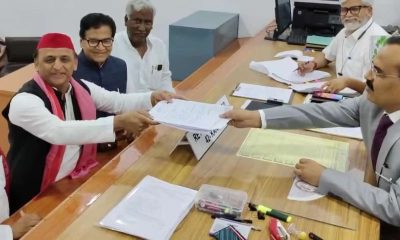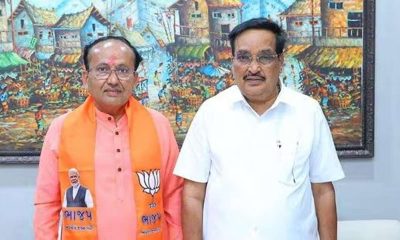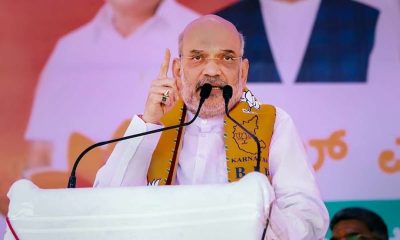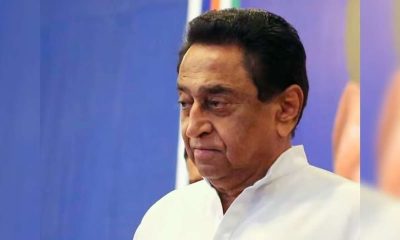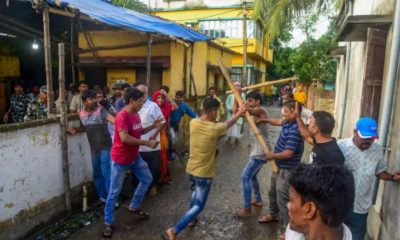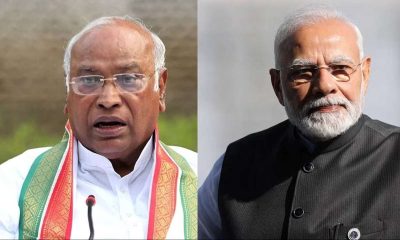Latest Politics News
Sangh parivar’s Ram temple clamour picks up to redeem BJP’s electoral fortunes
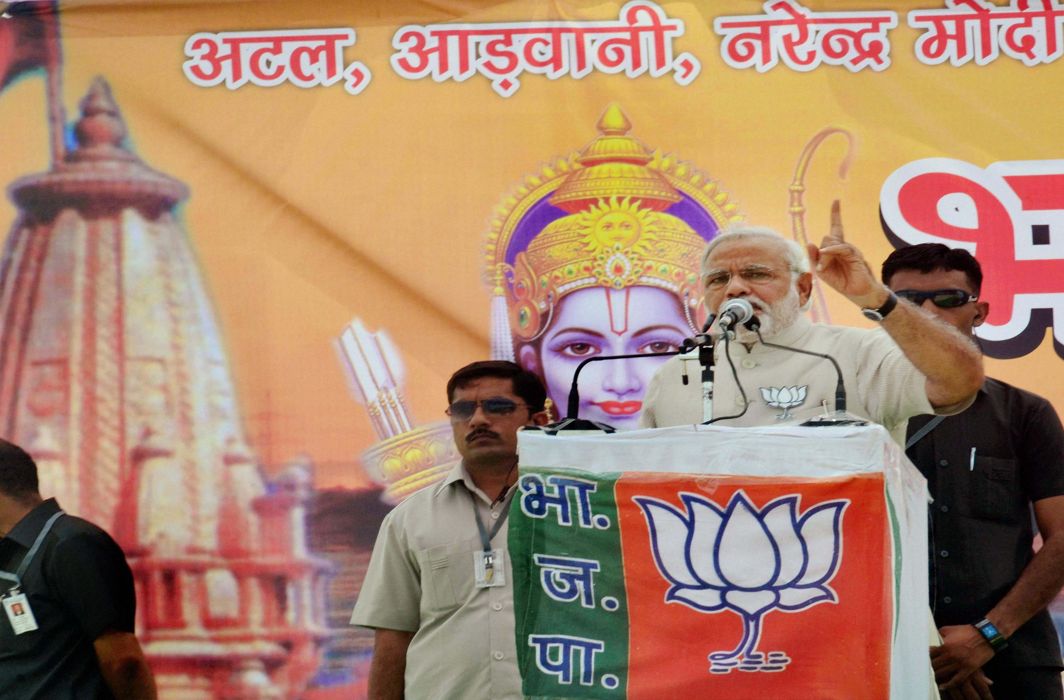
[vc_row][vc_column][vc_column_text]Ram temple issue being strictly a matter of faith and not politics was a cloak that has now been discarded.
The meeting of ‘sants’ under the banner of Akhil Bharatiya Sant Samiti (ABSS), with organisational backing of Vishwa Hindu Parishad (VHP), openly and unequivocally called for re-electing Narendra Modi government and charting out a schedule for a series of meetings over the next few months.
The focus of mobilisation would naturally be Uttar Pradesh, the state where all projections show that in the event of a grand alliance of Bahujan Samaj Party (BSP), Samajwadi Party (SP) and Congress, BJP and its allies would lose a number of seats in the Lok Sabha elections of 2019. With little to show by way of performance of Yogi Adityanath government and the Modi government at the Centre, too, fighting to divert focus from host of issues, the construction of the Ram temple, which was on the BJP’s 2014 manifesto, would “neturalise” controversies surrounding Rafale, the CBI, the impact of rising prices, the economic slowdown, the farmers’ agitation, among others, and bring the entire Hindu votebank under a single umbrella “Hindu Astha” – reported Asian Age citing BJP sources. Those in charge of the BJP’s propaganda cells have also been asked to “convince” the media of the “importance and sentimental value of the Hindu faith”.
The move for Ram temple construction could also help consolidate BJP’s core votebank in the poll-bound states, particularly in Madhya Pradesh, Chhattisgarh and Rajasthan, where the BJP’s electoral prospects were not quite bright.
A move to send a strong signal to start the construction of the Ram temple at the disputed site could bring back the voters disenchanted with BJP governments in these states. The ABSS — an umbrella organisation of over 3,000 Hindu monks and ascetics from 127 sects — on Sunday passed a resolution demanding that the government bring in a law or an ordinance for the construction of a Ram temple in Ayodhya.
Speculation was rife that Modi government could consider bringing in an ordinance and summoning a special Parliament session after the Parliament’s Winter Session, which is expected to begin in the second week of December – an Ordinance brought before the session would need to be ratified when the Parliament meets. Meanwhile BJP’s Rajya Sabha MP Rakesh Sinha has stepped forward to bail the government out of any possible hassles in this regard and offered to introduce a private member’s Bill in Parliament, challenging Opposition parties to oppose it.
Leaders of BJP and its Sangh parivar affiliates have been issuing statements almost on a daily basis about growing impatience among people of the nation for construction of Ram temple without any further delay. To lend substance to it, plans have been chalked out for a series of programmes.
A statement issued by the ABSS said three large rallies would be held in Ayodhya, Nagpur and Bengaluru on November 25, culminating in a fourth in New Delhi on December 9 in support of a new law. “After this, meetings will be held in over 500 districts across the country,” the statement said.
“On Diwali this year, faithful devotees of Shri Ram should light lamps for the successful construction of a Ram temple,” said the statement. While the statement endorses the work of the Modi government over the issues of Dharma, culture, national security and self respect, it also says the monks are “upset” over the obstacles in the way of construction of a Ram temple.
The sants have declared the Supreme Court order “anti-temple”, and while calling Prime Minister Narendra Modi an “incarnate of Lord Ram”, the sadhus also appealed to followers and to Hindus in general to ensure that the Narendra Modi government returns to power in 2019. People should vote for those who have faith in “Gai, Ganga, Geeta, Gayatri and Govind”, they said.
Reading from the “dharmadesh” of sants on various issues, Samiti head Hansdevacharya said, “Agar jeevit rehna hai, math-mandir bachana hai, behen-beti bachani hai, sanskriti aur sanskar bachana hai to iss sarkar ko dobara se laana hai (If we have to protect our lives, temples and maths, daughters and sisters, culture and tradition, then this government must be brought back).”
The sants had expectations from the current government, which no other government could fulfill, he said. “Only this government will meet our expectations. Apna desh bhi bachao, apni sanskriti bhi bachao, aur phir se iss Bharat ke andar yahi sarkar ko 2019 me wapas lao, lao, lao… Jai Shri Ram (Save the country and its culture, bring back this government in 2019)!”
Hansdevacharya said the sants were hurt with the delay in clearing the path for the building of the Ram temple. “But at the same time, we are satisfied with the central government’s work related to the nation, religion, culture, national security, and national pride,” he said.
Sant Govindeo Giri of Pune said “certain forces” were trying to destabilise the government, and that a “conspiracy” against the government was afoot in Madhya Pradesh. “We should bear in mind while planning for the future that our central government should not be destabilised in any situation,” Giri said. The sants want the BJP-led government to return, he said.
The gathering called for the creation of a new “Teerthan Ministry” to promote pilgrimages, and to ensure that pilgrimage centres were not turned into tourism destinations. They also demanded a National Ganga River Act to protect the sacred river, and a “Gau Mantralaya” for the protection and conservation of cows.
The dharmadesh asked the government to identify and deport Rohingya Muslims. It demanded a Uniform Civil Code and a “national population policy” to control the “imbalance” in population, and a National Register of Citizens (NRC) across the country to identify “illegal migrants” with 1947 as the reference year.
Earlier, Vasudevanand Maharaj, who presided over the two-day meet, demanded that the name Delhi, “given by Muslim rulers and the British”, should be changed to Indraprastha “as per our tradition”.
Separately, union minister Uma Bharti told PTI in an interview that while Hindus were the “most tolerant” people in the world, any talk of constructing a mosque on the periphery of a Ram temple in Ayodhya could make them “intolerant”. She invited Congress president Rahul Gandhi to lay the foundation stone of the temple in Ayodhya with her in order to “atone for the sins” of his party.
Bharti’s ministerial colleague Giriraj Singh said “no power in the world” could prevent the construction of a Ram temple in Ayodhya; Singh was echoed by Uttar Pradesh Deputy Chief Minister Keshav Prasad Maurya; and state Chief Minister Yogi Adityanath promised some “good news” on Ayodhya, separate PTI reports said.[/vc_column_text][/vc_column][/vc_row]
2024 Lok Sabha Elections
Mallikarjun Kharge writes to PM Modi seeks time to explain Congress’s Nyay Patra
Congress chief Mallikarjun Kharge wrote an open letter to PM Modi and said the Prime Minister is being misinformed by his advisors
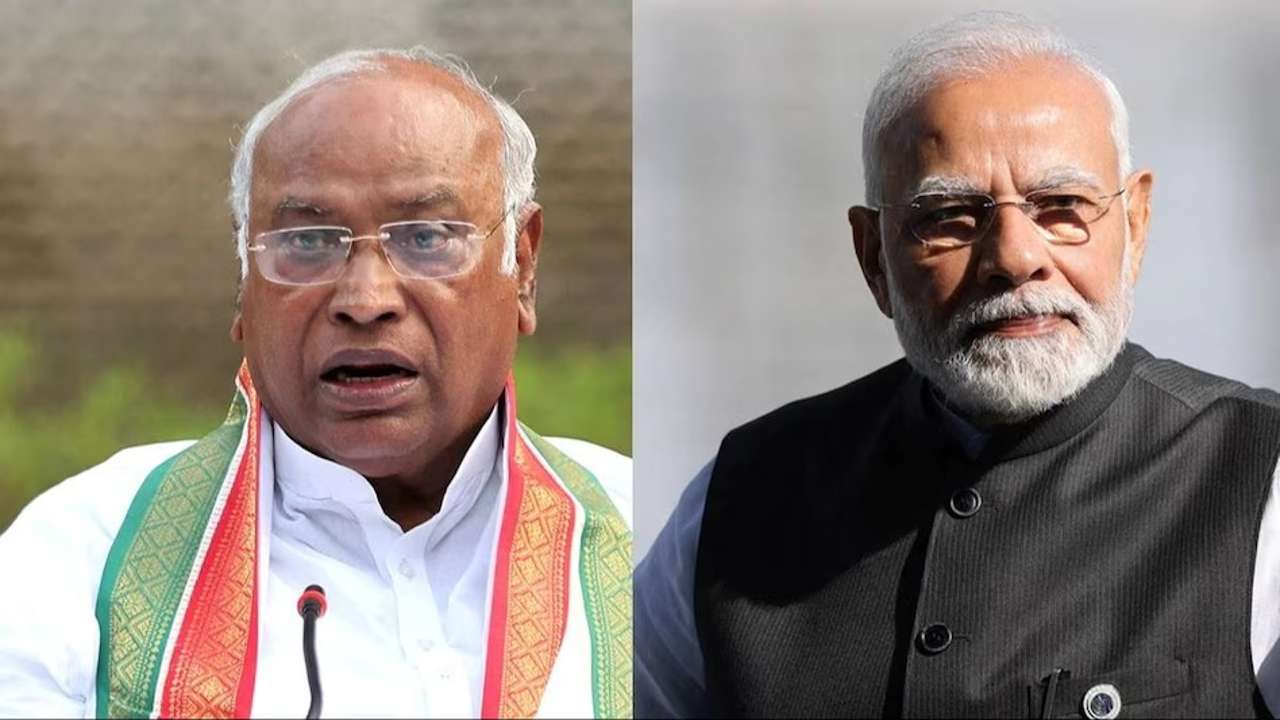
Congress President Mallikarjun Kharge wrote Prime Minister Narendra Modi a letter on Thursday, requesting an explanation of the ancient party’s Nyay Patra.
In support of the Congress manifesto, Kharge said that the Nyay Patra aims to give justice to marginalised people from all castes and communities, including women, children, farmers, and labourers.
The Congrss president said, PM’s advisors are misrepresenting things to him that aren’t even included in our manifesto. Kharge said, he would be more than happy to meet with him in person to explain thehir Nyay Patra’ so that, as prime minister of the country, he dosen’t make any statements that are false.
It has become his habit to seize on a few words taken out of context, create communal divide, Kharge added.
The Congress leader said that he is neither shocked nor surprised by the language used by the prime minister, in reference to Modi’s recent addresses.
It was expected that the PM and other leaders from his party would start speaking in this manner after he saw the dismal performance of the BJP in the first phase of the elections, he continued.
The impoverished and their rights have been a topic of discussion in Congress (nyay). We know that you and your administration do not care about the underprivileged and destitute, he remarked.
Continuing his attack on the prime minister, Kharge said, PM’s ‘suit-boot ki sarkar’ works for the corporates whose taxes you reduced while the salaried class pays higher taxes. The poor pay GST even on food and salt and the rich corporate claim GST refunds. That is why, when we talk of inequality between the rich and the poor, you are purposely equating it with Hindu and Muslim.
Following the criticisms made by the prime ministers in their recent election speeches, Kharge has responded. Modi has not held back when criticizing the main opposition party at his rallies, accusing them of scheming to redistributing assets and referring to the Congress manifesto as a “imprint of the Muslim League.
2024 Lok Sabha Elections
Bollywood actor Neha Sharma campaigns for her father Ajit Sharma in Bhagalpur, Bihar
The Bollywood actor posted a video on her Instagram handle which showed her journey through various districts of Bihar, including Kishanganj, Banka, Purnea and Katihar. She was dressed in a traditional salwar kameez and was seen greeting and encouraging the public to cast their votes.
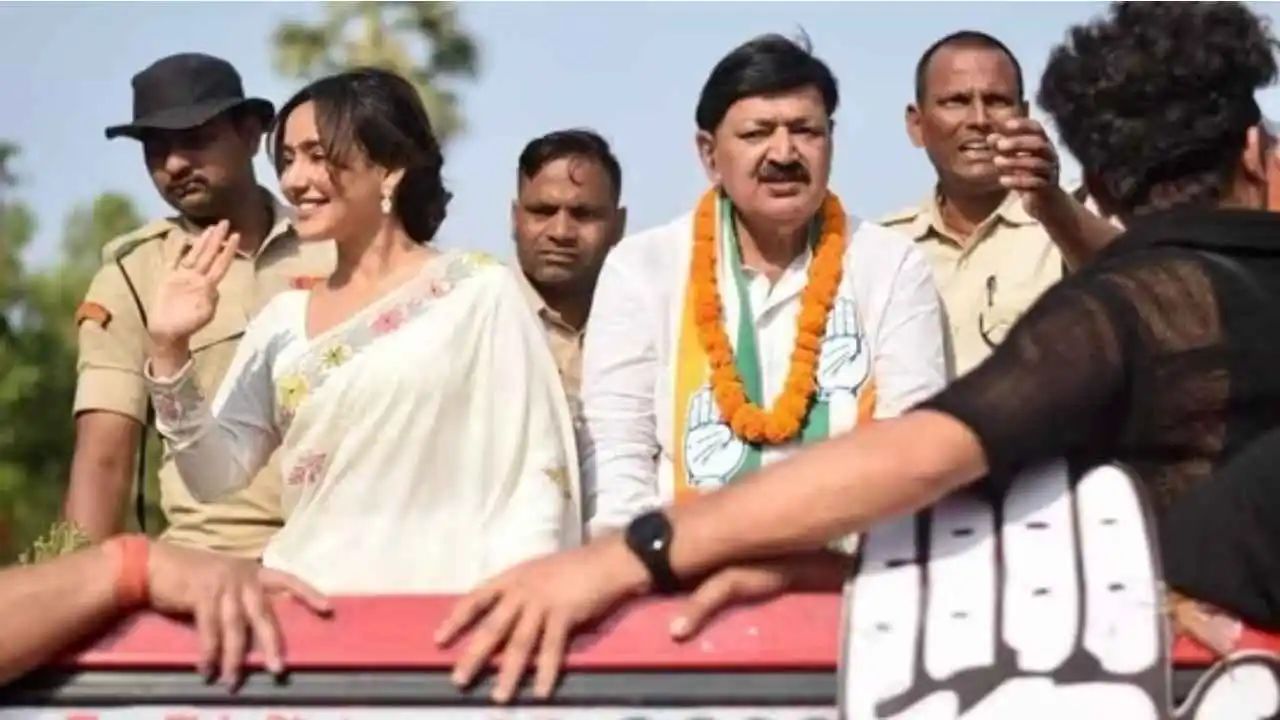
Bollywood actor Neha Sharma’s recent participation in a roadshow in Bihar has taken the internet by storm. Sharma, known for her roles in films like Tum Bin 2 and Crook, was seen supporting her father, Ajit Sharma, who is contesting from Bhagalpur Lok Sabha seat on a Congress ticket. The roadshow came amid speculations that the actor might enter politics. But, it is now clear that she was just campaigning for her father.
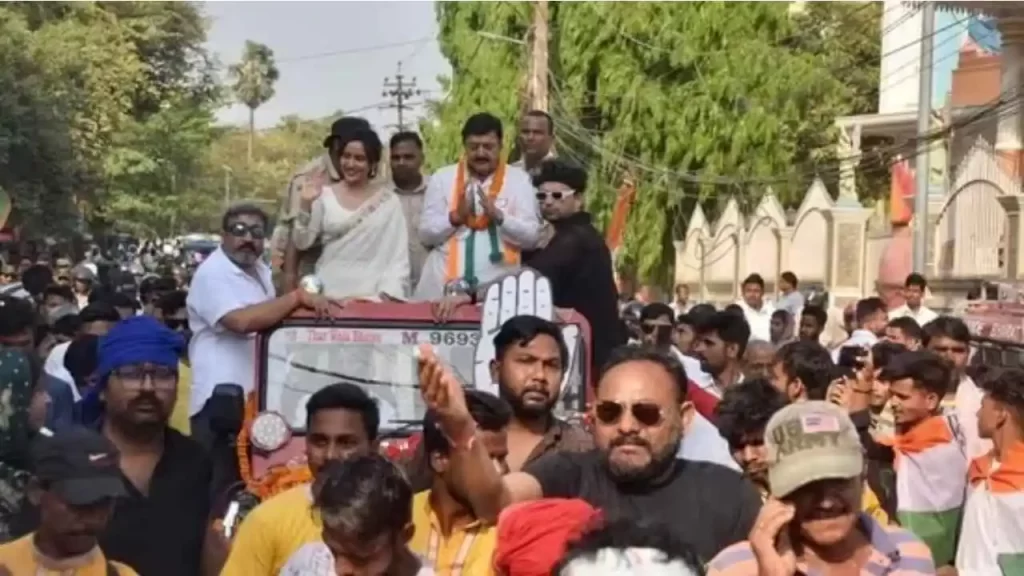
The Bollywood actor posted a video on her Instagram handle which showed her journey through various districts of Bihar, including Kishanganj, Banka, Purnea and Katihar. She was dressed in a traditional salwar kameez and was seen greeting and encouraging the public to cast their votes.
The actor received a warm reception and love from a large crowd in Pirpainti and Kahalgaon during her roadshow. She wrote on Instagram that it is said when someone gives one a place in their heart, then they live there forever. She said her heart is full of all the love and support she was receiving from the people. She thanked the people for the warm welcome she got in Pirpainti and Kahalgaon. Aapka pyar sar ankhon par.
Another video, circulating on social media showed the actor actively participating in her father’s election campaign in Bhagalpur. The election to the Bhagalpur Lok Sabha seat is set to take place in the 2nd phase on April 26. Ajit Sharma is representing the Congress and is up against JDU’s Ajay Kumar Mandal in this seat.
Earlier, there had been rumours and speculations that Neha Sharma might join politics. But many reports have clarified that she is not making her political debut yet. The Bollywood actor had been offered the opportunity to join politics by her father Ajjit Sharma but she is currently focusing on her acting career.
2024 Lok Sabha Elections
Mallikarjun Kharge vows to continue politics till his last breath to defeat BJP
The 81-year-old Congress leader was speaking at a election rally in Afzalpur and said that if the people did not vote for the Congress candidate, he would think that he did not have any place in Kalaburagi anymore.

Congress President M Mallikarjun Kharge on Wednesday appealed to the people of Kalaburagi to at least attend his funeral if they thought he worked for them even though they do not wish to vote for Congress in the ongoing Lok Sabha elections.
The 81-year-old Congress leader was speaking at a election rally in Afzalpur and said that if the people did not vote for the Congress candidate, he would think that he did not have any place in Kalaburagi anymore. The Congress President sought an emotional chord with the people of his home district of Kalaburagi, Karnataka
The grand old party has fielded Kharge’s son-in-law Radhakrishna Doddamani from Kalaburagi, against BJP’s sitting MP Umesh Jadhav. Kharge had won the Lok Sabha elections from Kalaburagi in 2009 and 2014, but lost in 2019. He appealed to the voters to vote for Congress but at least come to his funeral if they thought that he had done some work in Kalaburagi. Kharge added that he would continue in politics till his last breath to defeat the BJP and RSS ideology.
The Congress leader said he is born for politics and whether or not he contests the election, he will continue to strive till his last breath to save the Constitution and democracy of the country. He asserted that he will not retire from politics. Kharge said that retirement happens from a position but one should not retire from his/her principles. He said he is born to defeat the ideology of the BJP and RSS and not to surrender before them.
He advised Karnataka Chief Minister Siddaramaiah, who shared the stage with him, to follow his principles. He said he had told Siddaramaiah many times that he may retire as CM or MLA, but he cannot retire from politics till he defeats the ideology of the BJP and RSS.
-

 India News14 hours ago
India News14 hours agoLandslide hits Arunachal Pradesh, highway linking Indo-China border affected
-

 Cricket news7 hours ago
Cricket news7 hours agoTelugu superstar Mahesh Babu meets SRH captain Pat Cummins, says it is an absolute honour
-
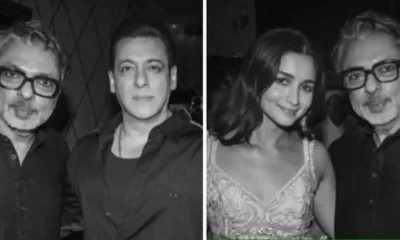
 Entertainment13 hours ago
Entertainment13 hours agoBollywood stars Salman Khan, Alia Bhatt, Rekha, Sonakshi Sinha, Aditi Rao Hydari attend Sanjay Leela Bhansali’s Heeramandi premiere
-

 Education12 hours ago
Education12 hours agoFarmer’s son Nilkrishna Gajare Nirmalkumar from Maharashtra scores 100 NTA score in IIT-JEE Mains 2024
-

 India News15 hours ago
India News15 hours agoTamannaah Bhatia summoned in illegal IPL streaming app case, to appear before cyber cell on April 29
-

 Cricket news15 hours ago
Cricket news15 hours agoIPL 2024: Rishabh Pant, Axar Patel score half centuries as Delhi Capitals beat Gujarat Titans by 4 runs
-
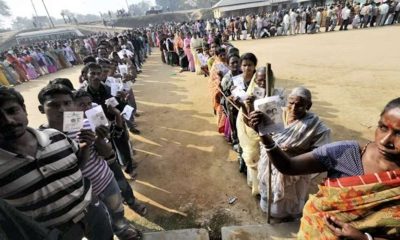
 2024 Lok Sabha Elections13 hours ago
2024 Lok Sabha Elections13 hours agoBihar: Election Commission extends voting timings for 4 Lok Sabha seats due to heatwave
-

 Entertainment10 hours ago
Entertainment10 hours agoAamir Khan to begin shooting in Delhi for Sitaare Zameen Par next month

